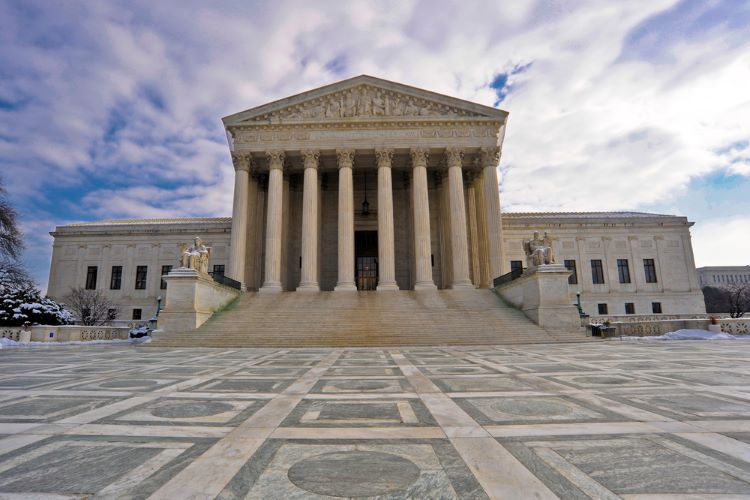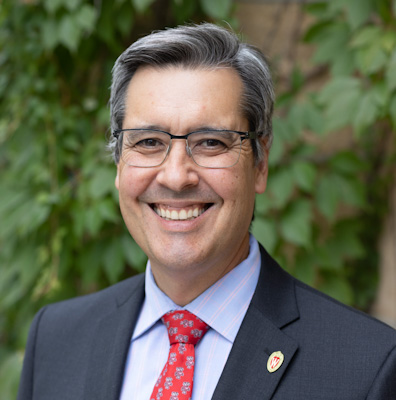After Supreme Court limits prosecutors fighting corruption, what comes next?

The Supreme Court has ruled that a federal fraud statute regarding state and local officials does not cover gratuities, even if the payments were intended as rewards for official acts. (Photo from Shutterstock)
For years, federal prosecutors have been coming up with ways to fight state and local corruption, and the battles may be harder going forward, thanks to a recent U.S. Supreme Court opinion. The Supreme Court found a federal fraud statute regarding state and local officials does not cover gratuities, even if the payments were intended as rewards for official acts.
The opinion for Snyder v. United States was published in June. Shortly afterward, Michael Madigan, who was a member of the Illinois House of Representatives for 50 years before being charged with racketeering and bribery in 2022, filed a motion to dismiss various counts against him. The federal jury trial is scheduled to start in October.
Madigan’s motion is pending. Some lawyers say federal prosecutions of state and municipal officials accused of corruption will change under Snyder; others aren’t so sure.
According to Daniel Tokaji, the University of Wisconsin Law School dean, Snyder was a narrow ruling about an “oddly worded statute” focused on state and local officials.
The Supreme Court “had a pretty reasonable interpretation of the statute,” says Tokaji, who has taught classes on legislation and regulation. “There are plenty of things to cry Chicken Little over, but this case isn’t one of them.”
Alternatively, Ryan S. Hedges, a shareholder in the Chicago office of Vedder Price, says the ruling will have “far-reaching implications.”
 According to Daniel Tokaji, the University of Wisconsin Law School dean, Snyder v. United States was a narrow ruling about an “oddly worded statute” focused on state and local officials. (Photo by Nick Wilkes)
According to Daniel Tokaji, the University of Wisconsin Law School dean, Snyder v. United States was a narrow ruling about an “oddly worded statute” focused on state and local officials. (Photo by Nick Wilkes)
“With a gratuities charge no longer available under the statute, you are likely to see significantly fewer prosecutions of state and local officials in the context of corrupt payments,” says Hedges, a former federal prosecutor who practices in the firm’s government investigations and white collar defense group.
Snyder involves James Snyder, a former mayor of Portage, Indiana, who in 2021 was found guilty of violating a federal statute that prohibits state or local officials from accepting anything valued at more than $5,000, if it’s intended to influence or reward them.
According to federal prosecutors, after Portage awarded two contracts worth $1.1 million to a local trucking company, the company gave Snyder a $13,000 check. Lisa Blatt, who argued the case for Snyder before the Supreme Court, declined comment.
Ruling 6-to-3, the court found that statute does not cover gratuities. Writing for the majority, Justice Brett Kavanaugh found that the statute applied only to quid pro quo acts of bribery, behavior in which officials solicited, demanded or accepted something of value before taking an official act, rather than accepting it after the act.
Prosecutors argued that the statute was intended to cover gifts corruptly given to public officials as rewards for favored treatment. But Kavanaugh wrote that the agency’s interpretation of the statute would create “traps for unwary state and local officials.”
“Is a $100 Dunkin’ Donuts gift card for a trash collector wrongful?” Kavanaugh wrote. “What about a $200 Nike gift card for a county commissioner who voted to fund new school athletic facilities? Could students take their college professor out to Chipotle for an end-of-term celebration? And if so, would it somehow become criminal to take the professor for a steak dinner? Or to treat her to a Hoosiers game?”
Dissenting justices worried that the ruling would make it harder for federal prosecutors to use the statute as it was intended—to keep local and state officials in check.
“Officials who use their public positions for private gain threaten the integrity of our most important institutions,” Justice Ketanji Brown Jackson wrote for the dissent. “Greed makes governments—at every level—less responsive, less efficient and less trustworthy from the perspective of the communities they serve.”
Jason Linder, a partner in both the Washington, D.C., and Los Angeles offices of Mayer Brown, says the ruling means federal prosecutors who want to pursue corruption by state and local officials had better be prepared to “do a little more homework to prove their cases.”
“If they want to go after public corruption when payments are made after official action has been taken, they will have to dig really hard through evidence, like text messages, to establish that a corrupt agreement existed before those official actions were taken,” says Linder. He is a former senior federal prosecutor who co-chairs Mayer Brown’s investigations and white collar defense practice.
According to Richard Briffault, a Columbia Law School professor specializing in political corruption law, the court has been attempting to limit the arsenal available to the Justice Department.
He points to several recent rulings by the Supreme Court curtailing prosecutors. In McDonnell v. United States, a 2016 unanimous ruling, the court overturned the conviction of Bob McDonnell, former governor of Virginia. McDonnell was accused and found guilty of accepting more than $165,000 in gifts, such as a Rolex watch, family vacations and clothing for his wife, in exchange for help arranging meetings with government officials and launching a dietary supplement.
Writing for the majority in that case, Chief Justice John Roberts narrowed the scope of what could be considered an official action as part of a corruption case.
Four years later, in Kelly v. United States, the Supreme Court unanimously overturned the conviction of two defendants who were accused of participating in the 2013 Bridgegate scandal that upended traffic in New Jersey. The defendants, tied to then-Gov. Chris Christie, were accused of closing down access lanes to the George Washington Bridge to punish one of the governor’s political opponents. Justice Elena Kagan wrote that “not every corrupt act by state or local officials is a federal crime.”
Meanwhile, Congress could fix the issue with the anti-corruption statute by rewriting it to specifically include gratuities, says James M. Koukios, a partner in the Washington, D.C. office of Morrison Foerster and co-chair of the firm’s securities litigation, enforcement and white collar defense group.
“But good luck with that,” says Koukios, who also serves as co-head of the firm’s FCPA + global anti-corruption practice. “It’s hard to get a majority in Congress to agree on rewriting a law about a federalism issue.”
Regarding Madigan, a federal indictment accuses him of leading a criminal enterprise with the purpose of enhancing his political power and financial well-being, while also generating income for his political allies and associates. The government alleges that Madigan and a co-defendant, Michael McClain, caused businesses to make payments to Madigan’s associates as a reward for their loyalty to the politician, at times in return for the associates performing little or no legitimate work for the businesses.
Madigan’s lawyer and the U.S. attorney’s office in Chicago did not return repeated requests for comment. Patrick Cotter, McClain’s attorney, with Madigan’s counsel has filed court documents asking that significant portions of the federal indictment be dismissed.
In addition to the charges he currently faces, McClain, a former lobbyist for Commonwealth Edison, was convicted in 2023 of conspiracy bribery and falsifying records. McClain has asked that the conviction be dismissed.
“Snyder is the latest effort by the Supreme Court to tell federal prosecutors to please, please, please stop stretching the law to cover stuff you don’t like,” says Cotter, a partner in the Chicago office of UB Greensfelder. “The court is saying, just use the law to prosecute what it was intended to prosecute.”
Write a letter to the editor, share a story tip or update, or report an error.


